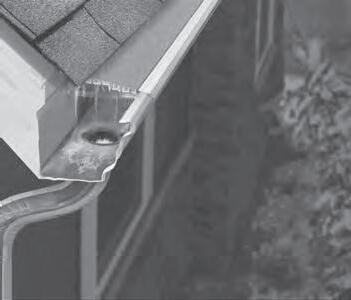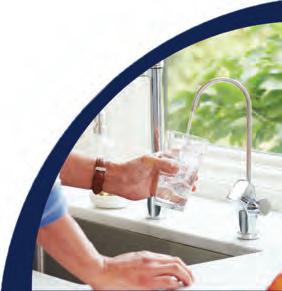
8 minute read
V unte s
Needed
• Patrick Place - A Comfort Care Home: Resident Care, Fundraising, Community Outreach. Email cchpatrickplace@gmail.com
• Webster Comfort Care Home: Our volunteers o er compassionate care to our 2 residents who are approaching the end of their lives, we o er run the clock care. Volunteers are responsible for all aspects of resident care. Email volunteercoord@webstercomfortcare.org
• Advent House: We are a 2 bed comfort care home for the dying. Seeking volunteers to provide hands on care. Contact us for more information. 585-223-6112 or email volunteer@theadventhouse.org
• UR Medicine Home Care: Meals On Wheels needs volunteers to deliver meals in Monroe County. We deliver Monday- Friday between the hours of 10:20 am and 1:30 pm depending on where you deliver. Call 585-274-4385 for more information or visit our website at www. homecare.urmc.edu
• Honeoye Falls - Town of Mendon Historical Society: e Honeoye Falls - Town of Mendon Historical Society is in need of docents to volunteer at our Museum for its standard Sunday a ernoon hours (2-4pm). Email president@hfmhistorical.org or call 585-281-0014
D. RAS
Painting and Staining
Interior Painting
Sherwin Williams
Paint & Stains
Senior Discounts
Fully Insured • Free Estimates
(585) 738-6695
Fair Housing Statement
All real estate advertised in the Genesee Valley Penny Saver is subject to the Federal Fair Housing Act, which makes it illegal to advertise any preference, limitation, or discrimination based on race, color, religion, sex, age, marital status, handicap, familial status, or national origin, or intention to make any such preference, limitation or discrimination. We will not knowingly accept any advertising for real estate which is in violation of the law. All persons are hereby informed that all dwellings advertised are available on an equal opportunity basis.
Fair Housing Enforcement Project

Monroe County Legal Assistance Center
1 W. Main Street
Rochester, NY 14614
(585) 325-2500 • www.lawny.org
EQUAL HOUSING OPPORTUNITY
DID YOU KNOW?
Choking is a leading cause of unintentional death in infants. Young children not can choke on food as well as objects they put in their mouths while exploring the world around them. Parents of young children and hosts who intend to invite youngsters into their homes can learn how to respond when kids appear to be choking.The Mayo Clinic recommends the following approach when tending to children under the age of 1, which differs from the steps necessary to address choking instances in older children and adults.
· Assume a seated position and hold the infant facedown on your forearm, whichisrestingonyourthigh.Support the infant’s head and neck with your hand, and place the head lower than the trunk.
· Thump the infant gently but firmly five times on the middle of the back using the heel of your hand. The combination of gravity and the back blows should release the blocking object. Keep your fingers pointed up to avoid hitting the infant in the back of the head.
· Turn the infant face up on your forearm, resting on your thigh with the head lower than the trunk if the infant still isn’t breathing. Using two fingers placed at the center of the infant’s breastbone, give five quick chest compressions.Press down about 11/2 inches, and let the chest rise again in between each compression.
· Repeat the back blows and chest thrusts if breathing doesn’t resume. Call for emergency medical help.
· Begin infant CPR if one of these techniques opens the airway but the infant doesn’t resume breathing.
• Herschell Carrousel Factory Museum: Available roles for volunteers include ride operator, special events, maintenance, and docent. Email info@carrouselmuseum.org
• Webster Community Chest, LLC: Serving 14580 area residents in need of help. Volunteers needed for monthly food distribution other fundraisers and food drives. Seeking new Board members also. See our website for details. Email webcommchest@gmail.com
• Hospeace House Inc: Looking for something meaningful in your life? We are a 2-bed comfort care home for those facing end-of-life. In addition to resident care volunteers, we are seeking volunteers to assist with social media, newsletters, events and fundraising. Visit us- www. HospeaceHouse.org Email volunteercoordinator@hospeacehouse.org or call 585-374-2090
• Hospeace House In Naples: Serving Naples and surrounding communities in a two bedroom comfort care home. Donate to e Wild ower Challenge to defray operation costs and volunteer for resident care, cleaning, cooking and shopping. Visit Hospeacehouse.org or call 585-374-2090
• House of John: e House of John is a 2-bedroom Comfort Care Home located in Cli on Springs. We provide end-of-life care to those unable to be cared for at home at no cost to the resident. We are looking for caring, reliable people willing to share 4-8 hrs. a month to assist with resident care. No caregiving experience required. All training is provided free of charge. If interested, please call or email the House at 315-462-5646 or house@houseo ohn.org
• Perinton Ambulance: Seeking volunteers for general o ce/administrative work as well as building & grounds. Hours and tasks vary based on ability and availability. Email volunteer@pvac.org
• Catholic Charities of Bu alo: e Home Visitation Program needs Friendly Home Visitors, age 21+ to volunteer one hour each week through in person visits or calls to a 60+ older adult in Genesee County who is living independently and has expressed feelings of loneliness. Call Lisa Wittmeyer at 716-341-6751 to learn more about volunteering with us.
• Light Hill, of Canandaigua Comfort Care Home Inc.: A two-bed end of life care home. We are always seeking volunteers for hands-on care, home & garden maintenance, light housekeeping and/or fundraising support! Contact us today or ll out an application on our website at lighthillhome. org. We would be so honored to add YOU to our extended family! Email us at mk@lighthillhome.org or call 585-393-1311.
Charitable Organizations and Nonprofits can submit requests at gvpennysaver.com under ‘Share With Us.’ Published online and in print of the last week of the month as space permits. See more volunteer opportunities at gvpennysaver.com.
To Your Good Health
By Keith Roach, M.D.
Nurse Claims Wound
Must Heal From the Inside Over Time
DEAR DR. ROACH: Whenever I got a wound while I was young, my mother would take me to the hospital to get stitches. I am now 94. I went to get a wound seen, and the nurse said that it needed to heal from the inside. They treated it with gauze, wrapping and then a stocking. It took months to heal. Why the big change? Why couldn’t they have just put in stitches and saved me months of healing?
-- D.J.
ANSWER: A wound can be sutured (stitched) closed when it is new, clean and regular. A wound cannot be closed if it is infected or irregular. Most chronic wounds cannot be closed by stitching. Also, if there is a lot of swelling around the wound, there may be so much pressure that the wound cannot be closed and must be allowed to heal over time. This is often the case with larger wounds. Basic principles of wound healing are to treat and prevent infection by bacteria or other germs, control pain and bleeding, and avoid treatments that are toxic to open wounds. I hear very frequently from people who have mistreated wounds. Strong agents like hydrogen peroxide, iodine, bleach and even soaps will kill more of your body’s healing cells than bacteria, and they should not be used in open wounds.
I also hear people say wounds “need air,” but wounds heal faster when they are moist. A barrier like petrolatum (Vaseline or many other proper wound-care agents) and a clean cover will accelerate wound healing. Most wounds do not need topical antibiotics, and these should only be used when recommended by an expert. The best experts for wound care are wound-care nurses and, in extreme cases, vascular or plastic surgeons. It takes time for a wound to heal. How much time depends on many factors, but a time span of months is not unusual, especially with a person in their 90s, who may not have the same blood supply they had when they were much younger.
***
Dr. Roach regrets that he is unable to answer individual questions, but will incorporate them in the column whenever possible. Readers may email questions to ToYourGoodHealth@med.cornell.edu.
© 2023 North America Synd., Inc. All Rights Reserved
Quality Sleep
To help you feel your best and sleep more soundly, try the following tips: Take a shower – About 90 minutes before bedtime, take a hot bath or shower. This will help to reduce muscle tension & accelerate sleep onset. Create an electronics curfew – The blue light from your favorite electronic devices interrupts your ability to relax and fall asleep. Don’t use your smartphone, tablet and other digital devices for one hour before bed. Stretch to relax – Stretching for 10-15 minutes before bed will help reduce muscle tension. Turn down noises and do some gentle stretches to relax the muscles and mind.

Set a wake-up schedule – Try to wake up at the same time each morning, even on the weekends. This will help keep your internal clock ticking correctly so you can fall asleep more quickly and sleep deeply.
Embrace natural light – About 15 minutes of sunlight each morning will help reset your circadian rhythm so you can rise more naturally and then sleep better in the evenings.
Healthy Hearing Keeps You
Learn more without obligation. Call today for details and your appointment.
We Listen More... To Help You Hear Better!
Understanding Dementia

Dementia presents itself through various symptoms, and memory loss alone is not enough to lead to a dementia diagnosis. Dementia can affect thinking and social abilities, but the Mayo Clinic notes that some dementias may be reversible. The following are some common symptoms of dementia:
• Trouble communicating or finding words.
• Difficulty completing complex tasks.
• Challenges with planning and organization.
• Episodes of confusion and disorientation.
• Memory loss, which is often noticed by a third party.
• Personality changes that can include agitation, anxiety, inappropriate behavior and even hallucinations.
Apart from Alzheimer’s disease, which is a progressive disorder most common in people age 65 and older, there are other types of dementia. Thesecondmostcommoniscalled“vasculardementia.”Thisresultsfrom damage to vessels that supply blood to the brain. This damage can be the result of stroke, smoking and other blood vessel conditions. Brain imaging can often detect blood vessel problems implicated in vascular dementia. Dementia with Lewy bodies, or DLB, is another dementia that laymen may mistakeforAlzheimer’sdisease.TheAlzheimer’sAssociationnotesthatpeople with DLB often have not only memory loss and cognitive problems common in Alzheimer’s, but they also display initial or early symptoms such as sleep disturbances, well-formed visual hallucinations, slowness, gait imbalance or otherParkinsonianmovementfeatures,whichcanleadtomisdiagnosis.
Antibacterial products: Antibacterial soaps, lotions and wipes may contain triclosan, triclocarban and at least 17 additional ingredients that are linked to various negative health effects. In September 2016, the U.S. Food and Drug Administration banned the use of these antibacterial agents. These chemicals can disrupt hormone cycles and cause muscle weakness.

“There’s no data demonstrating that over-the-counter antibacterial soaps are better at preventing illness than washing with plain soap and water,” the FDA said in a press release issued shortly after the rule was announced.




Beat The Travel Crowds This Memorial Day Weekend


Avoid peak travel times. The easiest way to find yourself stuck in Memorial Day traffic is to hit the road during peak travel times. Many people have embraced the “leave early” trend to holiday weekend travel, so the roads may be busier than drivers would expect on Thursday afternoon and evening. If it’s possible, drivers can hit the road prior to 3 p.m. Thursday. If work and kids’ school schedules make that impossible, delay your departure until late Thursday night or before the sun rises on Friday morning. Late at night or very early in the morning might not make for the most accommodating travel time, but roads tend to be the least congested at these times.










